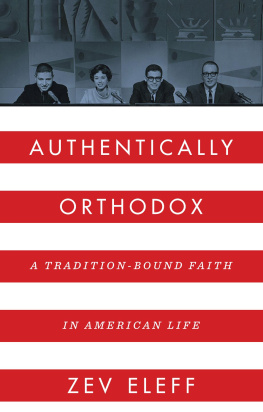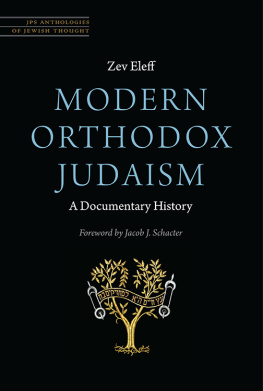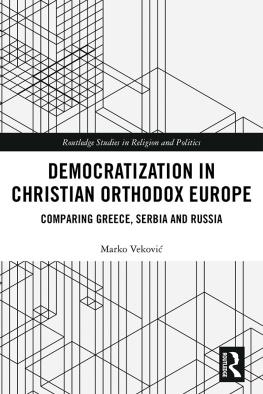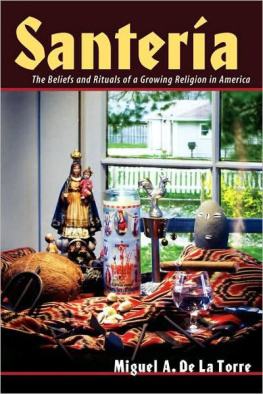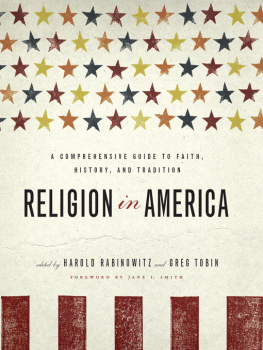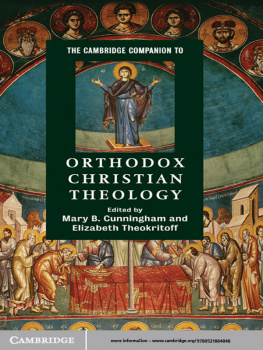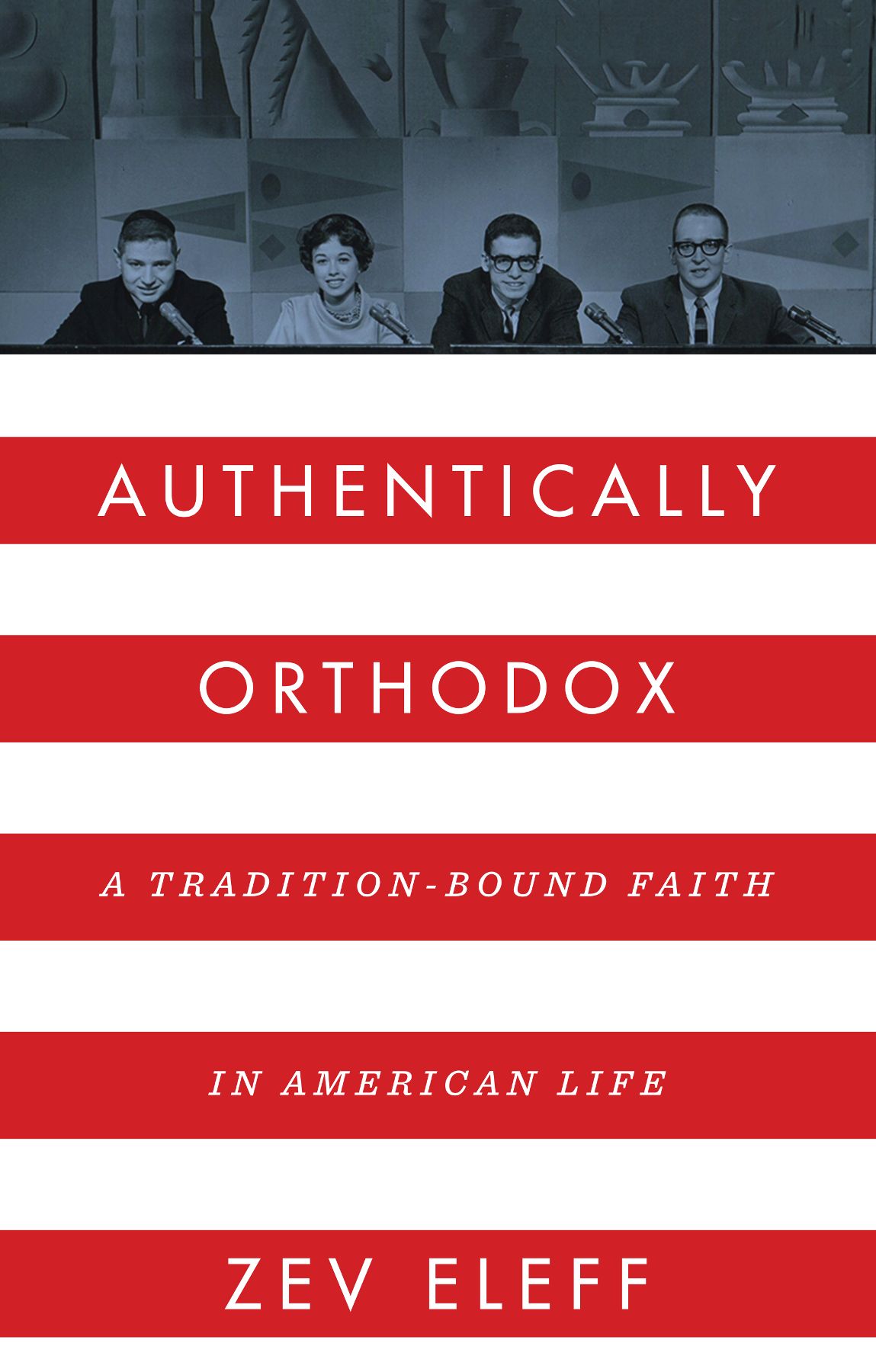
Authentically Orthodox
Authentically Orthodox
A Tradition-Bound Faith in American Life
Zev Eleff

Wayne State University Press
Detroit
2020 by Wayne State University Press, Detroit, Michigan 48201. All rights reserved. No part of this book may be reproduced without formal permission. Manufactured in the United States of America.
ISBN 978-0-8143-4481-1 (paperback); ISBN 978-0-8143-4480-4 (hardback); ISBN 978-0-8143-4482-8 (ebook)
Library of Congress Control Number: 2019948756
Wayne State University Press
Leonard N. Simons Building
4809 Woodward Avenue
Detroit, Michigan 482011309
Visit us online at wsupress.wayne.edu
For Adir
Lovable and original.
Authentic, by any standard,
just like his siblings, Meital and Jack.
Contents
I am very fortunate that my research and writing is not a lonely experience. In preparing this book, I benefited from the support and counsel of a wide and variegated circle of teachers, students, friends, and family. They bear none of the culpability but ought to claim an ample share of credit for the original ideas and the new knowledge contained in these pages.
I owe much to the mentors in whose classrooms and offices I sat, and for their continued commitment to my work. First to Jonathan Sarna and Jacob J. Schacter, for their wisdom and endless devotion. Rabbi Schacters class on Jewish autobiography was the toughest and most enriching course of my undergraduate career at Yeshiva College. He revealed to me the complexities and possibilities of historical research. Simply put, Rabbi Schacter taught me to love history. His close reading of every page of this book betokens his enduring influence on my life. Since welcoming me to Brandeis University in 2011, Dr. Sarna has served as an unfailing model of kindness, scholarship, and teaching. Certainly, this books central argumentthat Judaism must be understood in its American religious context, and the orientation of lived religionis influenced by Dr. Sarnas approach to American Jewish history. For this and so much else, I am in his debt. In addition I have studied with outstanding people whose training and writing inform this project. The guidance of scholars like David Hackett Fischer, Sylvia Fishman, Jeffrey Gurock, David Hall, Jane Kamensky, and Eugene Sheppard have encouraged me to deepen my analysis and get the most out of research and writing.
Likewise, my own students have offered fresh insights and helped organize my thoughts on a number of subjects. The students in my undergraduate seminar on Orthodox Judaism tested hypotheses, challenged historical paradigms, and engaged in lively, thought-provoking conversation. In particular, I single out Daniel Gutstein, David Isenberg, Velvel Loeb, Yehuda Dov Reiss, Edward Sandler, and Adeev Segal for arriving to class each day, prepared to reject flimsy theses and ready to comb through the sources in search of better arguments.
Of course historians cannot set their projects into motion without primary sources to interrogate. A bounty of materials is available online. But a lot of the scholarly building blocks that fortify this work are kept in the traditional storehouses of archives, libraries, and private collections. Owing to this, I hasten to offer gratitude to Shulamith Z. Berger of the Yeshiva University Archives. For more than a dozen years, Shuli has fielded my many requests, scanned documents, and helped navigate through historical quagmires. Her friendship and graciousness form the bedrock of a number of these chapters. Likewise, I am a better historian because of my friend and colleague Menachem Butler. I have gained a lot from his keen wit and wisdom. He has also directed me toward many of the essential texts used in the present work. Moreover, I am very heartened that Menachem has happily agreed to allow me to publish a revised version of our study of bat mitzvah, originally published for a symposium at the Torah Musings online journal.
Archivists and librarians generously mined materials and proved eager to help. Thanks are dutifully due to Dana Herman, Elisa Ho, Kevin Proffitt, and Gary Zola of the Jacob Rader Marcus Center of the American Jewish Archives; staff members of the American Jewish Historical Society; Jill Aizenstein and Shira London of Beth Tfiloh Dahan Community School; Patrick Robbins of Bob Jones University; Chloe Morse-Harding of the Robert D. Farber University Archives and Special Collections of Brandeis University; Sarah Goss of the Gordon College Archives; Jennifer Duplaga of the Duggan Library Archives at Hanover College; Vardit Samuels of Harvard Universitys Widener Library; Joanna Church of the Jewish Museum of Maryland; Marikit Schwartz Fain of John Brown University; Moshe Kolodny of Agudath Israel of Americas Orthodox Jewish Archives; Doug Denne of the University of the Ozarks; Kathy Bloch and Gail Goldberg of Spertus Institute; and David Osielski of the Buswell Library at Wheaton College.
Several individuals provided materials from personal and family collections or guided me to those hard-to-find repositories. I am grateful to Shlomo Appel, Freda Birnbaum, Laura Shaw Frank, Roz Goldberg, Becky Gordon, Cheryl Haut, Ittai Hershman, Harry Kozlovsky, David Levitt, Aryeh Lieberman, Shalom Menora, Shaul Robinson, Freda Rosenfeld, Marc Shapiro, Rita Shloush, Davis Selis, Shimon Steinmetz, Tamara Weissman, Marvin Wiener, Shmuel Winiarz, and Daniel Yolkut. I also benefited from several clues and ideas shared via social media forums like Facebook. This is a relatively new resource for scholars, and, for me anyway, crowd sourcing has confirmed that PhD-credentialed scholars dont hold a monopoly on historical research. As well, the Saul Silber Memorial Library of the Hebrew Theological College, my home institution, holds countless scholarly treasures that aided this research. For other books and periodicals, I am all too appreciative for the efforts of the interlibrary loan staffs at Brandeis University and the Skokie Public Library for fielding repeated requests.
Colleagues and friends read parts of this manuscript, listened to sections delivered at conferences, and sat with me to discuss work-in-progress. I am so very grateful to Gavriel Bachrach, Dovid Bashevkin, Kimmy Caplan, Mike Cohen, Hillel Davis, Yitzi Ehrenberg, Jonathan Engel, Seth Farber, Adam Ferziger, Joshua Furman, Rachel Gordan, Avi Helfand, Jerold Isenberg, Yoel Kelman, Leslie Ginsparg Klein, Laura Leibman, Abraham Lieberman, Leonard Matanky, Adam Mendelssohn, Adam Mintz, Lincoln Mullen, Shari Rabin, Jeffrey Saks, Shmuel Schuman, Moshe Schapiro, Marc Shapiro, Gil Student, Shimon Unterman, and Chaim Waxman.
This volume is a testament to the benefits of working within the scholarly establishment and the process of peer review. I delivered sections of this book at academic conferences. In addition, universities, synagogues, and other institutions invited me as a guest lecturer and scholar-in-residence to present my work, and I am grateful for those invitations and the discussions that ensued after those dozens of talks. Most of these chapters are brand new, except for Chapters 2 and 4. I dutifully acknowledge the graciousness of Johns Hopkins University Press and the editors of American Jewish History for authorizing the use of my December 2010 article on the College Bowl, and of Gil Student of Torah Musings for permitting the reuse of an article I coauthored with Menachem Butler that appeared in a May 2016 symposium. I have reconsidered and augmented both chapters, and the iterations presented here should be considered my most up-to-date thinking on those subjects. In addition I published several shorter and popular-style essays that appeared on
Next page
